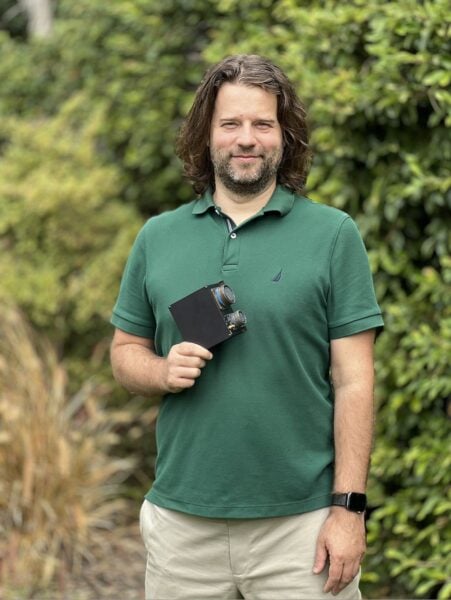Business
Ivan Makarov Champions Aerospace Principles to Transform Software Development

In a bold move to reshape the software development landscape, entrepreneur and engineer Ivan Makarov advocates for the integration of aerospace engineering principles into software practices. Makarov’s approach emphasizes the importance of meticulous planning and risk management, aiming to eliminate failures in software projects, much like in the aerospace sector where precision is paramount.
Who Is Ivan Makarov?
Originating from Siberia, a region known for its contributions to satellite navigation with the GLONASS system, Makarov has a rich background in engineering. His passion for technology emerged early, particularly in embedded systems and robotics. By the time he reached his third year at university, he was already innovating in drone technology, creating autopilots before open-source options were available. This interest evolved into a full-fledged drone engineering company, where Makarov led the design of drones tailored for remote sensing and geology. His experience in managing complex aerospace systems at a startup level has given him a unique perspective on how software engineering can adopt similar rigorous standards.
The Challenges in Modern Software Development
Today, software development is often characterized by agile methodologies, which prioritize speed and flexibility. While these methods improved upon the rigidities of traditional Waterfall processes, they have introduced significant challenges, including a lack of structure and increased complexity. The emergence of AI coding tools has further complicated matters, as they can produce code rapidly but often lack the architectural foresight needed for large-scale, reliable systems. Consequently, projects guided by AI can falter when faced with complex requirements.
Makarov identifies these issues as critical obstacles in the software industry. He believes that the rapid iterations encouraged by agile methods often lead to fragile systems that fail when scaled. His vision seeks to address these shortcomings through a paradigm he terms requirements-first development.
Makarov’s approach suggests that software requirements should not merely be static documentation but rather dynamic and actionable inputs that can directly influence code generation. He refers to this concept as spec2code, reinforcing the idea that specifications themselves can drive the coding process. This methodology draws inspiration from aerospace engineering, where planning for potential failures is an essential part of the design process.
“Space is the ultimate domain of complexity, where any failure comes at the highest cost,” Makarov explains. He sees an opportunity to apply these zero-error tolerance principles to general-purpose software development, effectively merging the precision of aerospace engineering with modern technological advancements.
As he looks to the future, Makarov envisions a transformative shift in how complex systems are built. He aims to combine AI capabilities with the robust methodologies of system engineering, which could lead to a future where software projects are more cost-effective, rapid, and dependable. By integrating requirements and system design into AI-assisted workflows, he believes that even small teams and startups can achieve unprecedented levels of innovation.
Makarov’s long-term goal is to facilitate a future where the construction of intricate systems becomes increasingly accessible, paving the way for advancements that were previously deemed impossible. He hopes that by establishing frameworks that simplify complexity, humanity can not only manage digital challenges but also expand into the orbital space industry and beyond. Through his pioneering efforts, Makarov aims to contribute to an era of technological breakthroughs, from enhanced software solutions to advancements in interplanetary exploration.
In summary, Ivan Makarov’s vision for the software development landscape highlights the potential benefits of applying aerospace engineering principles. By prioritizing thorough planning and leveraging AI, he is setting the stage for a new era of software that is robust, reliable, and ready to face the complexities of the future.
-

 Entertainment2 weeks ago
Entertainment2 weeks agoAnn Ming Reflects on ITV’s ‘I Fought the Law’ Drama
-

 Entertainment1 month ago
Entertainment1 month agoKim Cattrall Posts Cryptic Message After HBO’s Sequel Cancellation
-

 Entertainment1 month ago
Entertainment1 month agoKate Garraway Sells £2 Million Home Amid Financial Struggles
-

 Entertainment3 weeks ago
Entertainment3 weeks agoMasterChef Faces Turmoil as Tom Kerridge Withdraws from Hosting Role
-

 Entertainment2 weeks ago
Entertainment2 weeks agoITV’s I Fought the Law: Unraveling the True Story Behind the Drama
-

 Entertainment1 week ago
Entertainment1 week agoWhere is Tinder Swindler Simon Leviev? Latest Updates Revealed
-

 Entertainment1 month ago
Entertainment1 month agoAldi Launches Cozy Autumn Fragrance Range Ahead of Halloween
-

 Entertainment2 months ago
Entertainment2 months agoSpeculation Surrounds Home and Away as Cast Departures Mount
-

 Entertainment1 month ago
Entertainment1 month agoMarkiplier Addresses AI Controversy During Livestream Response
-

 Lifestyle4 weeks ago
Lifestyle4 weeks agoSummer Flags Spark Controversy Across England as Patriotism Divides
-

 Science2 months ago
Science2 months agoAstronomers Unveil New Long-Period Radio Transient ASKAP J1448−6856
-

 Health1 month ago
Health1 month agoWigan and Leigh Hospice Launches Major Charity Superstore









